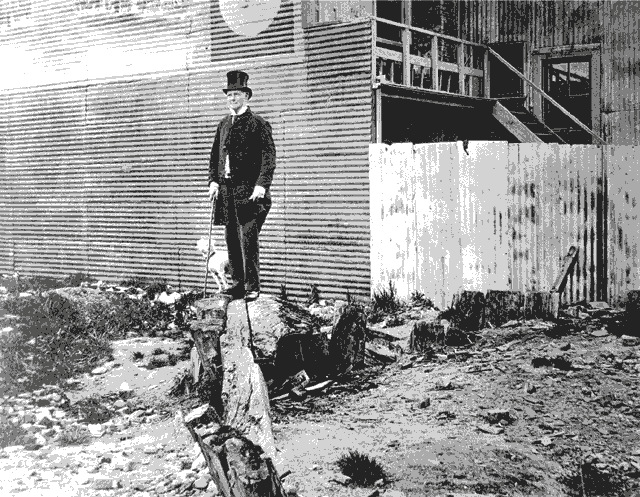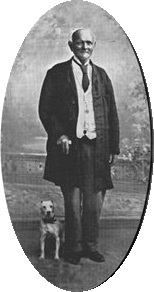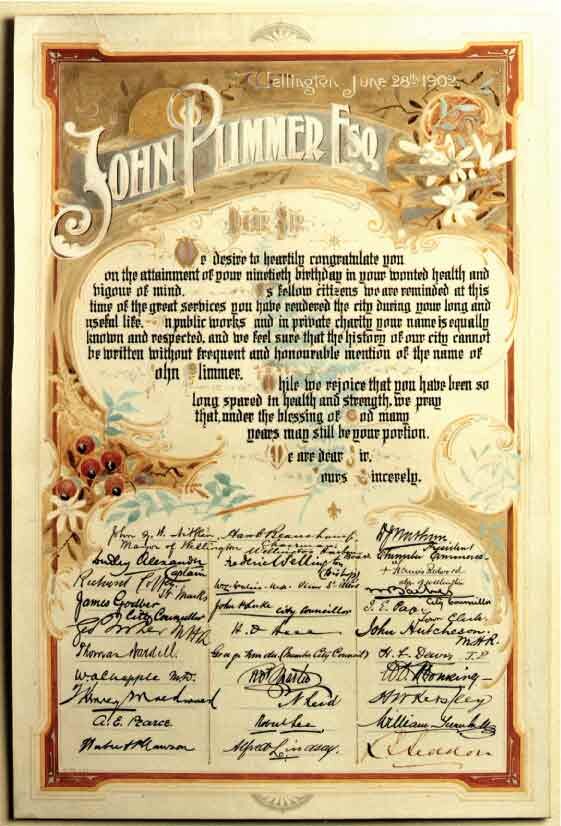|
? The Man from England John Plimmer was born in Shropshire, England in 1812. He worked with his father as a builder and carpenter, trades which would help him greatly in his new home of Wellington. John and his wife Eliza and their three children came to New Zealand as steerage passengers on the ship Gertrude, as part of the New Zealand Company's emigration scheme. They arrived in Wellington on 31 October 1841 after a four month voyage. A family man John Plimmer and his first wife had eight children; he and his second wife had two children. He had numerous grandchildren and his descendants still live in Wellington. Within a week of arrival in Wellington he had built a cabin for his family, unlike many new settlers who lived in tents for months. &with an eye for an opportunity In his first months in Wellington working as a builder he accepted both money and food or other goods in payment for work. Plimmer initially constructed brick houses for the new settlers, using lime from his own lime works and bricks from his own brick works. After the 1848 and 1855 earthquakes brick was not a popular material for construction, because it was too rigid in an earthquake. So Plimmer readily switched back to his first trade as a carpenter and continued constructing wooden houses and building for the growing town, as well as repairing buildings in the earthquake. In July 1844 he purchased land at "Clay Point" - the corner of Lambton Quay and Willis St - then and now a popular meeting place. The alternative to going around the point was climbing the hill on John Plimmer's land and walking down Boulcott St. This route became known as Plimmer Steps that Wellingtonians climb today. The oak tree planted by Plimmer from an acorn brought with him from England can still be seen on Plimmer Steps. After the 1848 earthquake government tenants acquired the lease of Barrett's Hotel on the Thorndon foreshore, and the licence for Barrett's was transferred to the old Plimmer residence at Clay Point. There the hotel reopened at what would soon prove to be a more suitable location for a drinking establishment. John Plimmer realised the importance of wharves for the growing town. He was already planning to build a wharf when the Inconstant wreck provided a ready made alternative. ? |
? &businessman, civic man and a
In his time in Wellington, John Plimmer was a carpenter an builder, brick manufacturer, land speculator, importer, merchant, landlord, and civic leader. Plimmer was elected to the Wellington Provincial Council in 1857, and was a member of the Wellington Board of Works from its institution in 1862. After successfully organising a ratepayers petition to the Government to make Wellington a city, he was one of the first councillors to serve on the new Wellington City Council, formed in 1870. Plimmer was a founding member of the Wellington Chamber of Commerce, and through his writings in the local newspapers, keenly promoted the development of the province. John Plimmer also helped form a company to construct the railway between Wellington and the Manawatu. It was probably his greatest legacy to the development of Wellington. For his role in this Plimmer was honoured with the naming of the seaside town of Plimmerton. Plimmer built or managed many notable Wellington hotels, including Barrett's the Albert Hotel (Known as the Old Identities for the busts of notable figures of the day which adorned the outside wall), the City Hotel, and earlier hotel on the Tramways site in Newtown. In his later years, in recognition of his contribution to the city of Wellington, Plimmer was unofficially bestowed the title "Father of Wellington". Plimmer is remembered in many Wellington landmarks: Plimmer steps, with the oak tree and the statue of John Plimmer and his dog Fritz, Plimmer house on Boulcott St, the bell of the Inconstant which hangs in St Alban's church at Pauatahanui, and the settlement of Plimmerton. |


